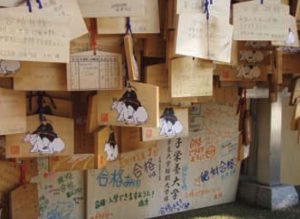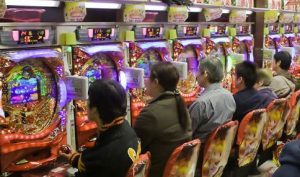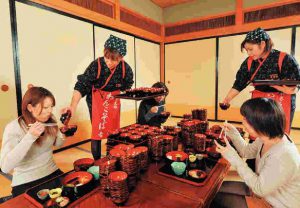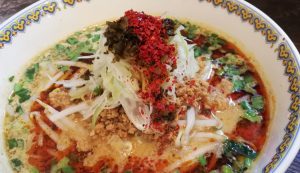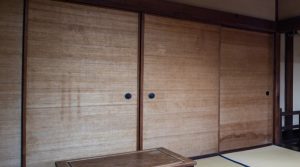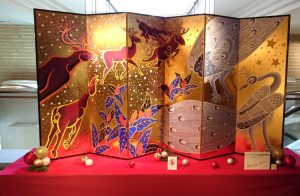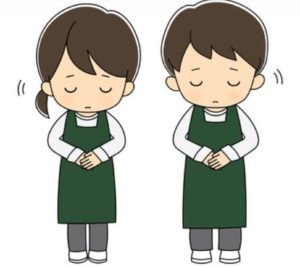What is Ema in Japanese?
Ema (絵馬 えま) Japan is a land of many deities. This is the time of the year when Shinto shrines receive a flood of supplications to the god of knowledge. These ema (wooden votive tablets) bear students’ prayers for passing school entrance examinations. Since people are always requesting special favors, gods in Japan aren’t able […]
What is Pachinko?
Pachinko (パチンコ) Pachinko is a game invented in Japan and sometimes described in English as “Japanese pinball.” Some new ideas and devices have been added to pachinko machines such as incorporating the function of a slot machine. Most people play pachinko just for fun, but some do it for a living. Pachinko is not a […]
sento
Sento (銭湯 せんとう) A sento is a public bath which people have to pay for. But in recent years, sento are gradually decreasing in number all over Japan mainly because most people now live in houses with baths. Even now, however, sento are indispensable to some people who do not have baths at home, and […]
compa
Compa (コンパ) Compa (or Kompa) is student slang that comes from the English word “company.” It refers to a party organized by students, especially by club members. Among the most popular club kompa are shinkan‐kompa (welcome parties) and oidashi‐kompa (farewell parties). And there are also go‐kon (short for godo‐kompa) arranged among different universities. Students often […]
wankosoba
Wankosoba (わんこそば) Wanko Soba, an Original of Eating Contests, Has Roots in a Feast for a Local Lord Wanko Soba is a historic culinary specialty of Iwate Prefecture. It is a unique and entertaining way to enjoy buckwheat noodles. Every time you finish a bowl of noodles, a waitress standing over your table immediately fills […]
Japanese Salary Man's Favorite Dish Ramen Spread from “Nankin-machi” Throughout Japan
Ramen (ラーメン) Ramen is a fixture in magazine articles and TV programs featuring food. Ramen is indeed one of Japan’s most popular dishes. It is a well-known fact that the roots of ramen lie in China, but the question is, how did ramen make its way to Japan from China? A wide variety of food […]
futon
Futon (布団 ふとん) Futons are Japanese beds. A set of futons includes a shikibuton (mattress) and kakebuton (quilt). When not used, the futons are folded up and placed inside a closet called an oshiire. Futons allow small Japanese rooms to be used more efficiently. Japanese quilted bedding placed on the floor. This bedding is usually used […]
おまたせしました“o-ma-ta-se shi-ma-shi-ta”
おまたせしました“o-ma-ta-se shi-ma-shi-ta” This phrase is often used in Japanese conversations. In a nutshell, it means "thank you for waiting." But more precisely speaking it is used for showing your respect for others and being sorry that you are late. This phrase is usually used after you keep someone waiting for some reason or other. If […]

